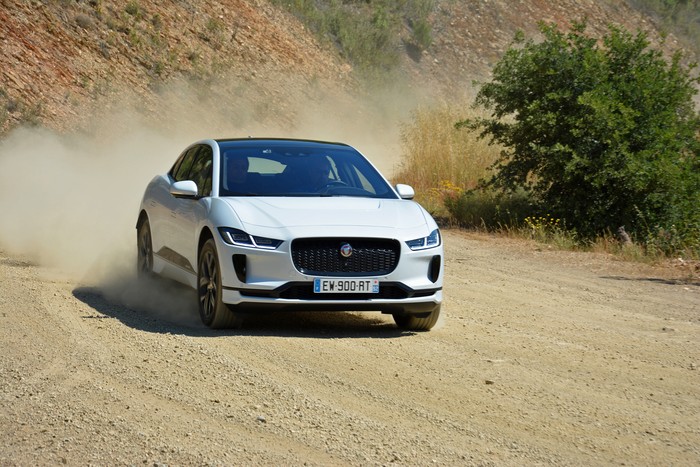
Jaguar going electric-only by 2030?
The British firm wants to take on Tesla.
Jaguar could shift its electrification offensive into high gear. The brand is considering going electric-only by 2030, according to a recent report.
British magazine Autocar has learned some of the company's top officials have already put together a tentative road map. It calls for replacing the XJ with an electric model aimed squarely at the Porsche Taycan and the Tesla Model S. The model will arrive by the end of the decade, even if it ends up keeping internal combustion engine options.
The plan calls for replacing the XE and the XF with a single model in 2023. It would take the form of an electric SUV in the vein of the recently-introduced Audi e-tron. The next-generation I-Pace would replace the F-Pace and the E-Pace in 2025.
F-Type production is scheduled to end during the first half of the 2020s. Its replacement would go electric, too. However, it's worth noting a separate report claims it will instead return with a twin-turbocharged, 4.4-liter V8 from BMW.
That would leave the J-Pace, a range-topping SUV that hasn't been introduced yet, as Jaguar's only non-electric model. It's expected to break cover in the coming months with gasoline- and diesel-powered engines. Its replacement would go electric, too, but it wouldn't arrive until about 2027. At that point, Jaguar will have completed its transition to an electric-only brand.
Insiders told Autocar they believe Jaguar can sell about 300,000 cars annually once it ramps up production of the aforementioned models. The project hasn't received the green light, however, but it has strong support from several sides. Parent company Tata likes it because it hasn't been thrilled with the brand's recent sales figures. Decision-makers like it, too, because they're having a difficult time putting together a favorable business case for next-generation variants of the XE and the XF.
There's another factor in the equation: switching Jaguar to electricity would lower JLR's CO2 average, letting sister company Land Rover bypass fully electric cars -- which it's reportedly struggling with -- and settle for mild hybrid powertrains.
Jaguar hasn't commented on the report.
Photo by Ronan Glon.